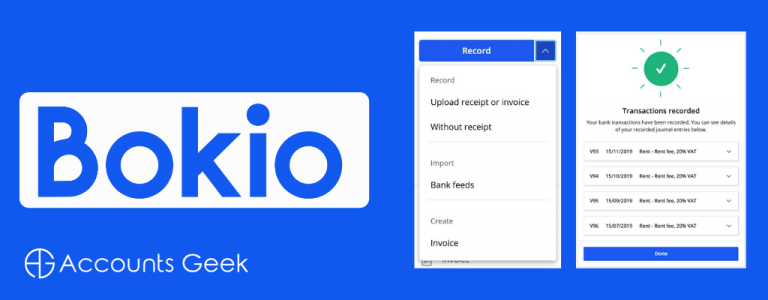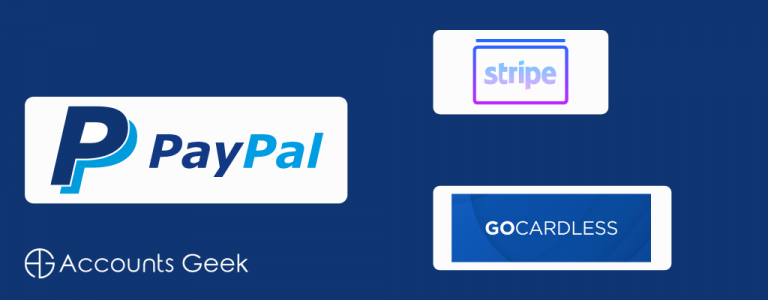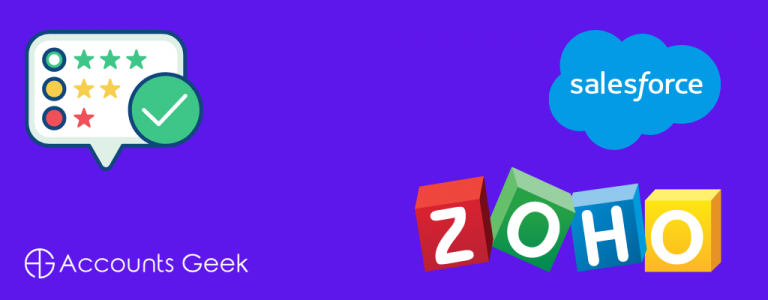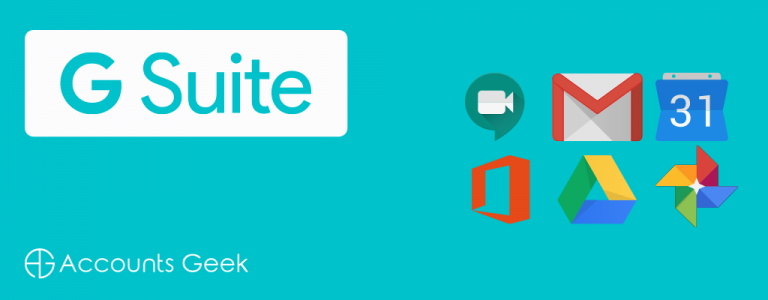Top 5 software for small businesses
As a small business, there’s multiple challenges you’ll face when you try to hit the ground running – but this article is aiming to make life at least a little bit easier. I’ll be doing my best to emphasise some of the best software a small business is likely to have access to. The idea of this article is to cover a variety of different software rather than repeat 5 different types of accounting software, as much as we enjoy accounting here!
These platforms are well researched and documented with a lot of user feedback, allowing for a comprehensive amount of information readily accessible.
1. Accounting software

Bokio is the free bookkeeping and invoicing software that a business could use for accounting. In fact, we here at Accounts Geek use Bokio with our clients to help manage their bookkeeping and invoicing, to make the experience as seamless as possible as they can simply upload images of receipts and have them recorded. They promote a completely free model for their software as long as you do your own accounting or consult with an accountant.
I feel that having a place to digitally store and manage receipts and bookkeeping which is accessible from any device as long as you have an internet connection is an invaluable tool that could set apart a small business from the rest by improving the efficiency and overall ease within the workflow.
2. Payment systems

PayPal is a great tool to use when setting up a business that is more akin to things like commissioned work/art and can generally be good for freelancers trying to grow their personal brand, as they charge a very minimal fee when you use a business account and happily support their users when it comes to combating fraud and chargebacks. This also leads into other systems which a customer might already have an account with, such as Amazon Pay, where you can even just load gift cards onto the accounts to make easy 1-click payments.
When it comes to payment systems, I don’t think sticking to just one is a good idea for an online store in any capacity as it can hinder the amount of clients you have as they could very easily be turned off at the prospect of having to make an account for a service. That’s why more general use case software and systems also have a place in the market, like Worldpay, which allows a user to pay with over 120 different currencies, supporting a lot of major bank cards.
3. Customer relations manager (CRM)

A CRM is a very important tool for any type of business as it allows for a much easier storage and retention of customer info, as well as being able to track where they are in the sales process. These tools are also key with tracking leads and prospects, allowing for any sales/marketing department to focus their efforts into more ideal clients.
At Accounts Geek, we use a range of CRM’s with one of them being Zoho, which is a very handy CRM that allows us to accurately track our customers through our marketing process, letting us follow up leads and make notes on our customers as we follow our company policy. It’s also a helpful intuitive product that allows for a team to collaborate and set tasks for one another, helping to ensure projects and tasks are done efficiently within the appropriate time frame.
4. Marketing

A piece of marketing software can change the trajectory of a business – getting the word out in an appealing and effective way can easily drive traffic upwards, pushing the business to new heights as it does so. This is particularly key in a small business as the goal is predominantly to grow both in size and in profit, and any tool or advantage that can be used to do so should be seized.
When it comes to marketing, the general consensus is HubSpot as the number one, as it’s an effective tool packed with features and compatibility with their other software – their CRM and Sales software. The downside is that past the starter edition – which is ideal for small businesses – it can get very expensive very quickly. However it does have a free trial at least, and boasts a wide variety of features including an SEO system. The biggest hurdle is deciding whether the price is worth paying for a smaller business.
5. Document Management/Word Processing

When it comes to a small business, depending on the line of work, being able to easily manage and coordinate documents within a team, could be crucial to the success of the company. It may seem simple to just use any word processor but it boils down to using something that’s both cost effective and efficient.
Our personal recommendation is the G-Suite, including things like Google Docs, Google Slides and Google Sheets – which if you’ve ever used something like the Microsoft Office set of applications, will feel very familiar. It also boasts a fully accessible mobile range of apps which allows you to work anywhere – even without an internet connection! Whilst you get 15GB of online cloud storage for free, you can also save your documents offline!
This list is a purely subjective list, but from my experience at Accounts Geek and in the world of work in general, these are the software and tools that are usually used both within small and even up to enterprise scale businesses.
Friday 9th July 2021 – Posted by Simon Cameron-Cooke
